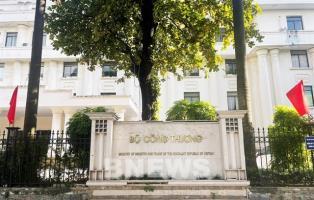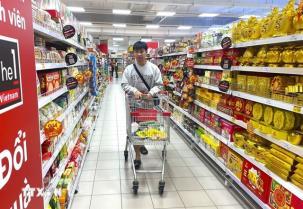Việt Nam is stepping up efforts to boost the export of Halal products to Turkey as part of its broader strategy to tap into the rapidly expanding global Halal market, valued at over US$2.5 trillion.

HÀ NỘI — Việt Nam is stepping up efforts to boost the export of Halal products to Turkey as part of its broader strategy to tap into the rapidly expanding global Halal market, valued at over US$2.5 trillion.
The Vietnam Trade Promotion Agency (VIETRADE) under the Ministry of Industry and Trade, in coordination with the Vietnamese Embassy in Turkey and the Foreign Economic Relations Board of Turkey (DEIK), recently held a hybrid seminar on Halal industry cooperation between Việt Nam and Turkey. The event gathered representatives from government agencies and business communities of both countries.
The seminar aimed to strengthen bilateral trade and investment in Halal products and services, helping Vietnamese firms promote their production capacity and compliance with international Halal standards. It also served as a platform for direct connections among management agencies, certification organisations, and industry associations from both sides.
Ambassador Đặng Thị Thu Hà said that after nearly 50 years of diplomatic relations, Việt Nam – Turkey ties have developed dynamically, particularly since Prime Minister Phạm Minh Chính’s visit in 2023. She noted that Halal cooperation remains a relatively new but promising field, as both countries possess complementary strengths and share strong government support. She urged stakeholders to seize opportunities to advance mutually beneficial cooperation.
Lê Hoàng Tài, Deputy Director of VIETRADE, said bilateral trade has maintained steady growth, surpassing $2 billion in 2024. Việt Nam is now Turkey’s second-largest trading partner in ASEAN, while Turkey serves as an important gateway for Vietnamese goods to access the Middle East, Europe and North Africa.
He noted that with its large Muslim population, Turkey is both a major consumer market and a regional Halal processing hub, while Việt Nam is emerging as a reliable supplier of Halal-certified goods, particularly in processed food, agriculture, beverages, tourism and logistics.
Halal Accreditation Agency (HAK) Board Chairman Zafer said global demand for certified Halal products and services is rising sharply, with Halal certification increasingly recognised as a standard for safety, hygiene and quality. He also provided details about Turkey’s certification requirements for imported Halal goods.
Yunus Ete, President of the World Halal Summit Council, emphasised the strong growth of Halal food, cosmetics, pharmaceuticals and tourism sectors worldwide. He highlighted Turkey’s strategic position bridging Asia and Europe and invited Vietnamese businesses to attend the World Halal Summit and Halal Expo to be held in Istanbul from November 26–29.
Ramlan Osman, Director of the National Halal Certification Centre (HALCERT) under the Ministry of Science and Technology, said his organisation has supported several Vietnamese enterprises in exporting to Japan and Malaysia, a model that could be replicated for the Turkish market. HALCERT, he added, also facilitates B2B connections between Vietnamese and Turkish companies to boost trade.
Despite strong potential, participants noted that Vietnamese exporters face challenges in entering the Turkish Halal market, including strict certification requirements covering ingredients, hygiene, humane production, transport and storage. The lack of mutual recognition of Halal certificates among Islamic countries also poses difficulties.
Reha Denemec, member of DEIK’s Chairman Board and Chairman of the Turkey–Việt Nam Business Council, affirmed that DEIK stands ready to support and connect enterprises of both sides, particularly in Halal cooperation.
Trần Việt Hùng, head of Import-Export at Visimex JSC, said Vietnamese Halal goods face strong competition from established suppliers such as India, Brazil, the US, Malaysia and Indonesia, as well as from Turkish producers. High certification costs and complex procedures pose challenges for small and medium-sized firms, while some Turkish importers require locally issued Halal certificates despite recognising foreign accreditations.
With global demand for Halal products growing rapidly, Việt Nam has identified the development of a Halal ecosystem as a strategic path to boost exports and strengthen its position in global value chains. The government has been implementing programmes to help enterprises improve production capacity, product quality and certification, while deepening collaboration with international partners to facilitate access to Islamic markets.
VIETRADE will continue working closely with the Vietnamese Embassy in Turkey, the Turkey–Việt Nam Business Council and relevant associations to foster effective and sustainable Halal cooperation, contributing positively to bilateral economic and trade relations, Tài said. — VNS



